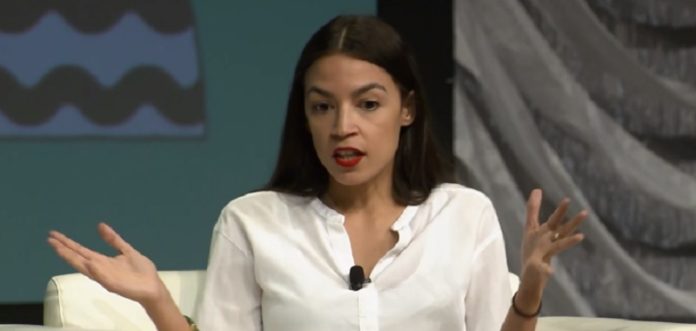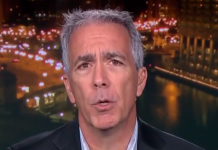When Rep. Alexandria Ocasio-Cortez spoke at the South By Southwest festival last weekend, she lit the place up. The occasion was packed with high-powered politicos like Elizabeth Warren and Beto O’Rourke. But AOC is the one people came to see at the festival in Austin, Texas. So many folks showed up in fact that when AOC (as she calls herself) took the stage, the house was completely full and some unfortunate people had to be turned away.
During her interview with The Intercept’s Senior Politics Editor Briahna Gray, she touched on the topics that concern her the most: identity politics, the Green New Deal, the idea of automation, and the hoops most minorities have to jump through, Quartz reports.
But she also discussed socialism, one of her favorite topics, and one that generally gets the GOP bent out of shape. She criticized those who fear-monger by saying socialism will spell the end of individual rights and noted once again the rising popularity of this ideology. She also kept things simple while explaining why she doesn’t believe in unchecked capitalism.
“Capitalism to me, is an ideology of capital,” she said. “The most important thing is the concentration of capital, and it means that we seek and prioritize profit and the accumulation of money above all else, and we seek it at any human and environmental cost… But when we talk about ideas for example like democratic socialism, it means putting democracy and society first, instead of capital first.”
The audience was definitely on board with that, applauding enthusiastically. So much enthusiasm, in fact, Quartz notes, that is typically reserved for startup founders or movie stars.
While discussing identity politics, Mediaite reports that Gray asked her:
“How do you negotiate the balance between a genuine desire for representation and a desire to also have substantive politics that don’t always mod map onto politicians who possess marginalized identities?”
Ocasio-Cortez (D-N.Y.) responded that it was a bit difficult to get people in her community to vote, because “they’ve been burned by politicians that look like them,” and added “there’s all this cynicism that resulted from electing people that ethnically matched the community, but once they got into power advanced the same agenda that was marginalizing the community, to begin with.”
And her identity is what made her who she is, adding that “my identity and my experiences with my community inform and add direct perspective to the positions that I hold, and to the policy that I hold.”
“Because it goes the other way, because you can’t have just a progressive position like Medicare for all without an understanding of race, because then you do get back to that position that you were talking about earlier where communities say ‘Oh this isn’t for me. This is for somebody else.”
The issue of identity politics was more fully defined at one point when a young woman wearing a Girl Scout uniform asked her:
“What advice would you give to young girls of color who want to get into politics?”
Ocasio-Cortez responded that she should look to herself.
“The advice that I give is stop trying to navigate systems of power, and start building your own power,” she said.
Then she explained how this relates to women and girls of color.
She talked about doing a Town Hall in Queen’s, New York, with Girls Who Code, and said young women need to fight the subconscious forces that try to make them act like someone else. And that’s why she wore earrings to her swearing-in earlier this year, “because we are taught that when you’re a woman of color, there are just so many things about you that is just non-conforming, you know?”
“Like, I happen to have been born with straight hair, but my nieces have, like, ‘fros, right? And so down to that, there are places where you have to make more space.”
Women of color are encouraged to fit in, she noted.
“And we’re told to put our hair back and be small and articulate in a certain way and be square, and essentially try to do an impression of power, which really are subconscious signals to try to act like white men.”
Ocasio-Cortez is bringing about necessary change so that women don’t have to blend into the beige background. It’s a welcome change.
Here’s her interview with Gray in the video below:
Featured image by SXSW via YouTube video











